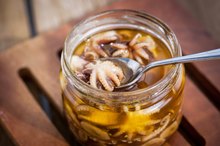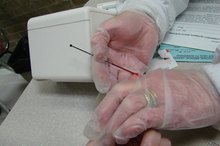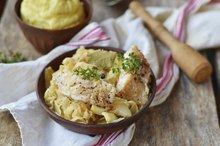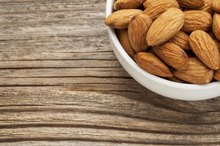What does fact checked mean?
At Healthfully, we strive to deliver objective content that is accurate and up-to-date. Our team periodically reviews articles in order to ensure content quality. The sources cited below consist of evidence from peer-reviewed journals, prominent medical organizations, academic associations, and government data.
- American Heart Association: Know Your Fats
- Centers for Disease Control and Prevention: Protein
- Harvard School of Public Health: Protein
The information contained on this site is for informational purposes only, and should not be used as a substitute for the advice of a professional health care provider. Please check with the appropriate physician regarding health questions and concerns. Although we strive to deliver accurate and up-to-date information, no guarantee to that effect is made.
What Are the Benefits of Quail Eggs?
Quail eggs are high in protein, low in saturated fat and rich in a variety of vitamins and minerals. However, per serving, they're higher in cholesterol than chicken eggs. Approximately three quail eggs equals one large chicken egg. With adjustments for size, you can use quail eggs in any recipe calling for chicken eggs, though Epicurious cautions that some people might find their flavor stronger than chicken eggs 3. If you have a history of heart disease, stroke or high blood cholesterol, talk to your doctor before including quail eggs regularly in your diet.
Low in Fat but High in Cholesterol
A serving of three quail eggs contains 42 calories, 3 grams of fat and under 1 gram of saturated fat. That's significantly less than the 72 calories, 5 grams of fat and nearly 2 grams of saturated fat you'd get from one chicken egg. Like chicken eggs, quail eggs supply mono- and polyunsaturated fats, both of which may lower your risk of elevated cholesterol and heart disease, especially if you limit your consumption of saturated and trans fats.
While one large chicken egg has 186 milligrams of cholesterol, though, three quail eggs have 228 milligrams. For a healthy adult, that's 76 percent of the 300-milligram recommended daily limit.
- A serving of three quail eggs contains 42 calories, 3 grams of fat and under 1 gram of saturated fat.
- That's significantly less than the 72 calories, 5 grams of fat and nearly 2 grams of saturated fat you'd get from one chicken egg.
High in Protein
The Nutritional Values of Freshwater Fish
Learn More
For their small size, quail eggs are packed with protein. Eating three quail eggs supplies almost 4 grams of protein, or 7 percent of a man's required daily intake and approximately 9 percent of a woman's. That's about as much protein as you'd get from 1/2 cup of cooked quinoa or 1 ounce of nuts such as cashews or walnuts. According to the Harvard School of Public Health, increasing your protein consumption from lean sources like eggs to 20 to 25 percent of your total daily caloric intake and decreasing your intake of refined carbohydrates may aid with weight loss and lower your risk of heart disease 7.
- For their small size, quail eggs are packed with protein.
- Eating three quail eggs supplies almost 4 grams of protein, or 7 percent of a man's required daily intake and approximately 9 percent of a woman's.
Rich in B Vitamins
Quail eggs supply 10 percent or more of an adult's recommended dietary allowance of the B vitamins riboflavin, vitamin B-12 and pantothenic acid. All three help metabolize fats, protein and carbohydrates for energy and promote nervous system function. Getting enough of all of the B vitamins in your diet may protect you against developing cataracts, heart disease, age-related macular degeneration or rheumatoid arthritis.
Good Source of Selenium and Iron
Difference Between Wheat Bran & Wheat Germ
Learn More
Adults need 55 micrograms of selenium each day. A serving of three quail eggs supplies almost 9 micrograms of selenium, or almost 16 percent of the RDA. A diet high in selenium-rich foods like quail eggs might lower your risk of heart disease and cancer and may boost your immune system. Quail eggs also contain 1 milligram of iron in every three-egg serving. That's 12 percent of a man's daily iron needs and 5 percent of a woman's. Without enough iron, you may be more likely to develop anemia or neurological disorders like attention-deficit hyperactivity disorder.
- Adults need 55 micrograms of selenium each day.
- A serving of three quail eggs supplies almost 9 micrograms of selenium, or almost 16 percent of the RDA.
Related Articles
References
- USDA National Nutrient Database: Egg, Quail, Whole, Fresh, Raw
- USDA National Nutrient Database: Egg, Whole, Raw, Fresh
- Epicurious: A Visual Guide to Eggs
- American Heart Association: Know Your Fats
- Circulation: AHA Dietary Guidelines
- Today's Dietitian: Protein Content of Foods
- Harvard School of Public Health: Protein
- U.S. Department of Agriculture: DRI Tables and Application Reports
- Egg, whole, cooked, hard-boiled. FoodData Central. U.S. Department of Agriculture. Published April 1, 2019.
- Miranda JM, Anton X, Redondo-Valbuena C, et al. Egg and egg-derived foods: Effects on human health and use as functional foods. Nutrients. 2015;7(1):706-729. doi:10.3390/nu7010706
- Eisenhauer B, Natoli S, Liew G, Flood VM. Lutein and zeaxanthin--food sources, bioavailability and dietary variety in age-related macular degeneration protection. Nutrients. 2017;9(2). doi:0.3390/nu9020120
- National Institutes of Health Office of Dietary Supplements. Choline fact sheet for health professionals. Updated February 24, 2020.
- American College of Asthma, Allergy and Immunology. Egg allergy. Updated March 21, 2019.
- Centers for Disease Control and Prevention. Flu vaccine and people with egg allergies. Updated November 25, 2019.
- Virtanen JK, Mursu J, Virtanen HE, et al. Associations of egg and cholesterol intakes with carotid intima-media thickness and risk of incident coronary artery disease according to apolipoprotein E phenotype in men: The Kuopio Ischaemic Heart Disease Risk Factor Study. Am J Clin Nutr. 2016;103(3):895-901. doi:10.3945/ajcn.115.122317
- Goose egg, cooked. FoodData Central. U.S. Department of Agriculture. Published April 1, 2020.
- Duck egg, cooked. FoodData Central. U.S. Department of Agriculture. Published April 1, 2020.
- Egg, quail, whole, fresh, raw. FoodData Central. U.S. Department of Agriculture. Published April 1, 2019.
Writer Bio
Michelle Kerns writes for a variety of print and online publications and specializes in literature and science topics. She has served as a book columnist since 2008 and is a member of the National Book Critics Circle. Kerns studied English literature and neurology at UC Davis.









